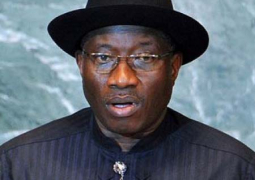The
free movement of people, goods and services are critical cornerstone in any
development crusade. Africa is gifted with an abundance of natural and energy
resources, outstanding geographical locations, as well as many ports that
facilitate access to and within our African countries. Our region is also
endowed with a wealth of human resources with a massive, 1.3 billion
population, which constitutes a large market for African products and an
abundance of labour which, if properly used, can enhance regional
competitiveness. But frequent new rules at our common borders are making this a
far-fetch reality. It is time for Africans to work together be it in
governments, private sectors and civil society - to maximize the use of our
available resources and claim the benefits of the AfCFTA.
The
recent border standoff between The Gambia and Senegal was rather unfortunate.
The incident, according to Gambian officials, was a decision by the Senegalese
transport union to deny Gambian commercial vehicle entry into Senegalese
territory. Few days later, The Gambia Transport union wants to do the same in a
retaliatory tit-for-tat move.
While
negotiation continues to find an amicable solution to the issue, Macky Sall,
President of the Republic of Senegal has ordered the removal of barriers for
free movement of goods & services.
He
further reaffirmed that Senegal will respect all the protocols on trade and
transportation and thus instructed his ministers of Transport and Interior to
liaise with their Gambian counterparts to remove all barriers to free movement
of persons and goods between Senegal and Gambia.
This
is a welcome development taking into account that The Gambia and Senegal are one people divided by colonial masters.
This
decision couldn’t have come at a better time than now when the countries are
working to accelerate regional integration through borderless Africa. To
accelerate regional integration, there is need to expand access to trade
finance and reduce behind-the-border trade restrictions such as excessive regulations
and weak legal systems.
There
is much that African countries need to do to increase intra-regional trade.
There
is need to eliminate or significantly reduce non-tariff barriers that are major
roadblocks to intra-African trade.
The
list of non-tariff barriers is as long as it is comprehensive, ranging from
prohibitive transaction costs to complex immigration procedures, limited
capacity of border officials and costly import and export licensing procedures.
For this to happen, it will take much more than political commitments; it will
require practical steps on the ground even if they come with some costs.
“Free
trade is not based on utility but on justice.”
Edmund
Burke




